News
Andre Hudson
-
July 27, 2021
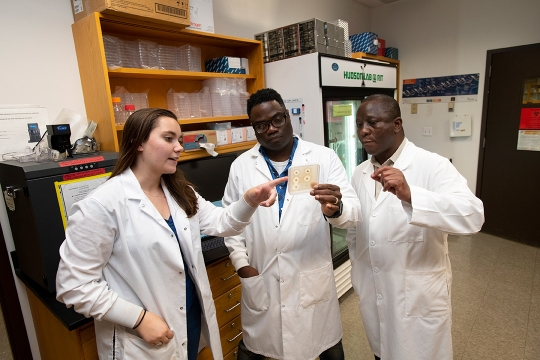
Student researcher focuses on bacteria in Lake Ontario
Marissa Schroeter’s summer undergraduate research explores a global health issue with a local twist. Her work prospects for new antibiotic compounds produced by two bacterial strains collected from Lake Ontario. She will present her findings at the RIT Undergraduate Research Symposium.
-
May 13, 2021

How dirty is your mask? We put it to the test
WHAM-TV talks to Mary-Anne Courtney, lecturer; Andre Hudson, school head; and Christy Tyler, associate professor, all in the Thomas H. Gosnell School of Life Sciences, about bacteria on cloth face masks and proper disposal of used face masks.
-
May 3, 2021
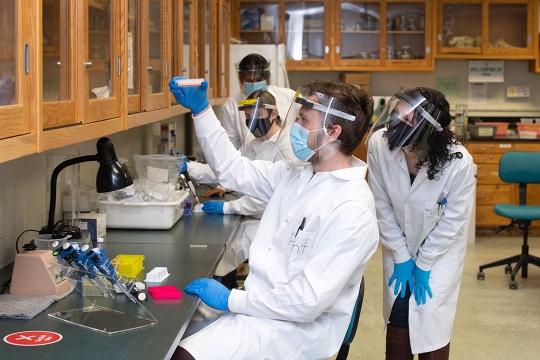
Faculty, students innovate when plans for saliva testing changed
Once RIT secured enough antigen tests for students for the spring semester, plans for administering saliva tests were put on hold. But this did not stop faculty and students in RIT’s College of Science from creating a Plan B of new lab activities, research, and community outreach.
-
January 15, 2021
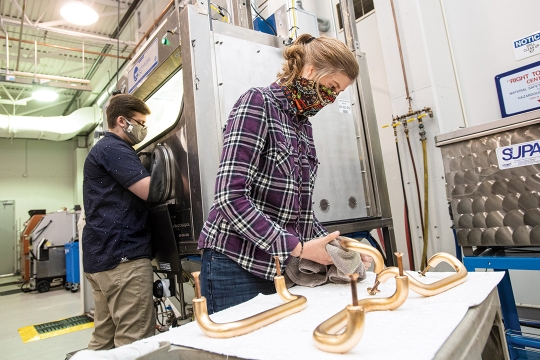
Strategic updates to campus will last beyond the pandemic
RIT spent more than $8.2 million to make RIT’s campus as safe and clean as possible so that students, faculty, and staff could study and work confidently and comfortably. The university’s Infrastructure and Health Technologies Task Force implemented a variety of changes to RIT’s academic settings, housing, and dining designed to fight the spread of the coronavirus.
-
December 4, 2020
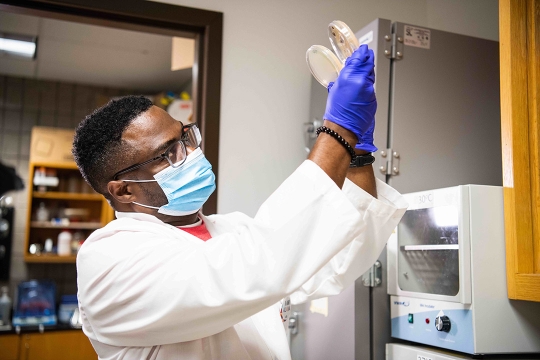
RIT begins development of saliva testing for spring semester
RIT is developing saliva testing protocols for campus as part of its plan to monitor the prevalence of the SARS-CoV2 virus, the causative agent of COVID-19. Development of the testing process will be done by André Hudson and Julie Thomas, both faculty-researchers in the Thomas H. Gosnell School of Life Sciences.
-
October 16, 2020

Tiger Alumni Week offers dozens of virtual activities
Virtual reunions, interactive programs, talks, a 5K, e-Sports, and even Tiger Trivia are just some of the dozens of events slated for Tiger Alumni Week, beginning Monday for RIT alumni, students, families, faculty, and staff.
-
September 4, 2020
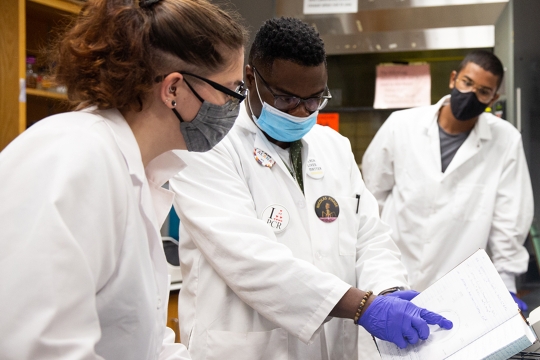
André Hudson: Encouraging Tomorrow’s Scientists, One Person and One Paper at a Time
Dr. André Hudson is well-known for training students in how to effectively communicate their scientific work, so his new role comes as no surprise. Beginning in January 2021, Dr. Hudson will join academics from universities like Harvard, MIT, and Yale on the Journal of Biological Chemistry (JBC) Editorial Board.
-
July 14, 2020
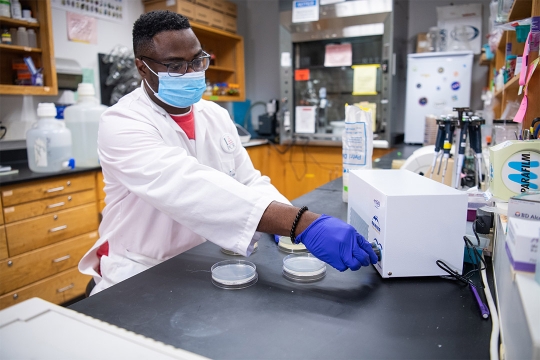
RIT strategically upgrades campus to prevent the spread of coronavirus
In a biology lab in Gosnell Hall, Professor André Hudson has been spending hours this summer testing products to see whether they are effective at killing and filtering microorganisms such as viruses, bacteria, and fungi. The effort is part of RIT’s Infrastructure and Health Technologies task force, which is putting changes in place to make RIT’s campus as safe and clean as possible in the fall.
-
February 20, 2020

Most bacteria found on touch screens is resistant to antibiotics, RIT study finds
WROC-TV talks to Professor André Hudson, head of the Thomas H. Gosnell School of Life Sciences, about antibiotic-resistant bacteria found on touch screens.
-
September 23, 2019

RIT receives multiple accolades for promoting diversity and inclusion
RIT received the 2019 Higher Education Excellence in Diversity (HEED) Award from INSIGHT Into Diversity magazine, the oldest and largest diversity-focused publication in higher education, for the sixth year in a row. Also, for the third consecutive year, RIT is being honored as an institution committed to diversity for 2019 by Minority Access Inc. And Professor André Hudson, pictured above, is among the individuals Minority Access will celebrate at the National Role Models Conference this year.
-
August 23, 2019

Researchers gain new insight about bacteria within grapevine-killing crown gall tumors
Scientists have mapped the DNA of bacteria found within a chronic disease affecting grapevines, a feat they hope will ultimately help protect the multibillion-dollar grape industry that produces juice, jelly, wine and other important products.
-
August 6, 2019
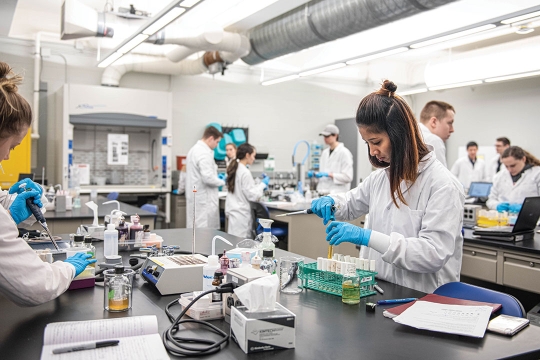
RIT expands genomics research
RIT’s genomics research capabilities have evolved significantly over the past year. The university has invested heavily in revamping and equipping its Genomics Research Lab Cluster. The overhauled genomics facilities will boost capabilities for researchers in multiple disciplines, including bioinformatics, biotechnology and environmental science.